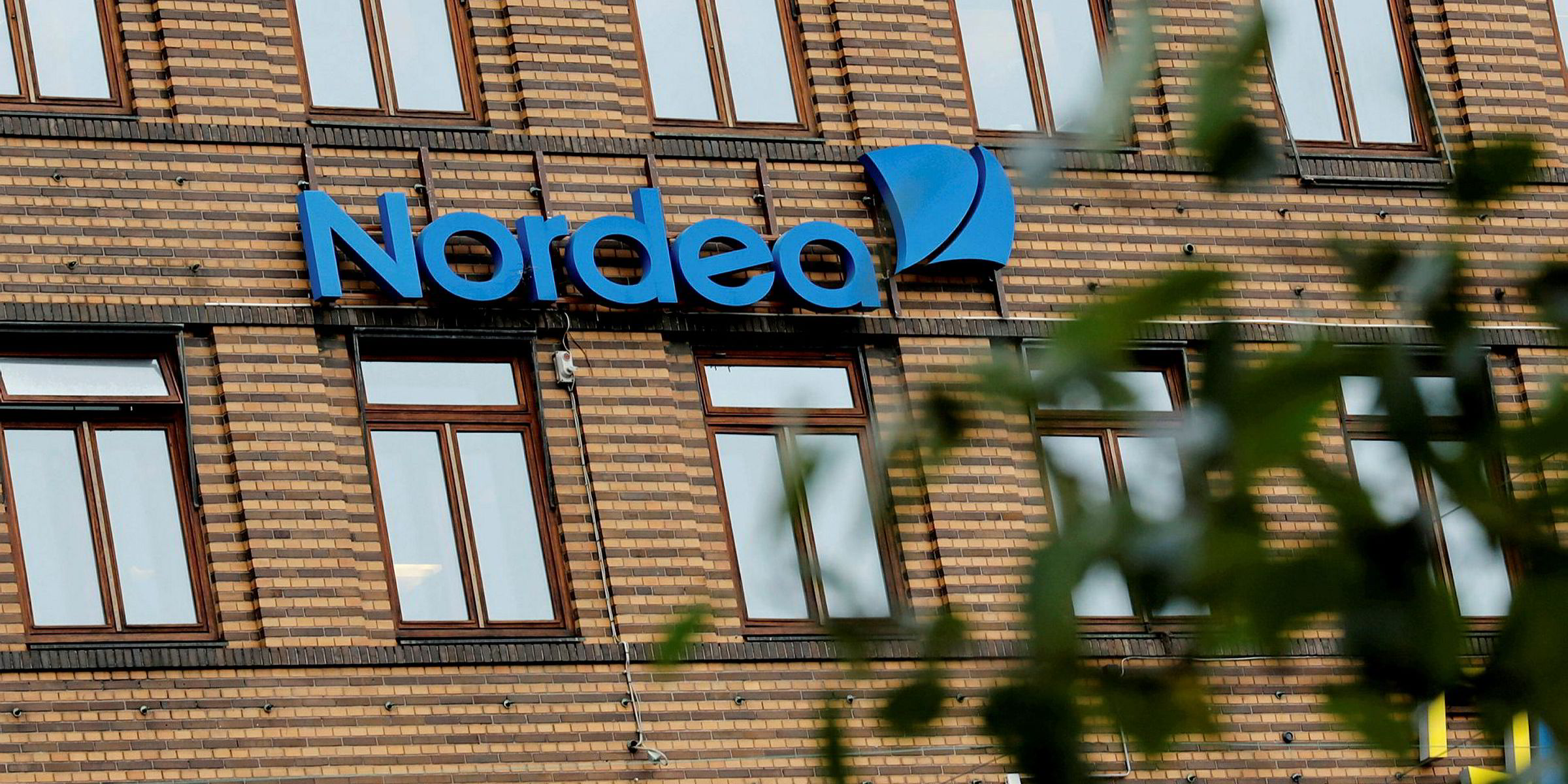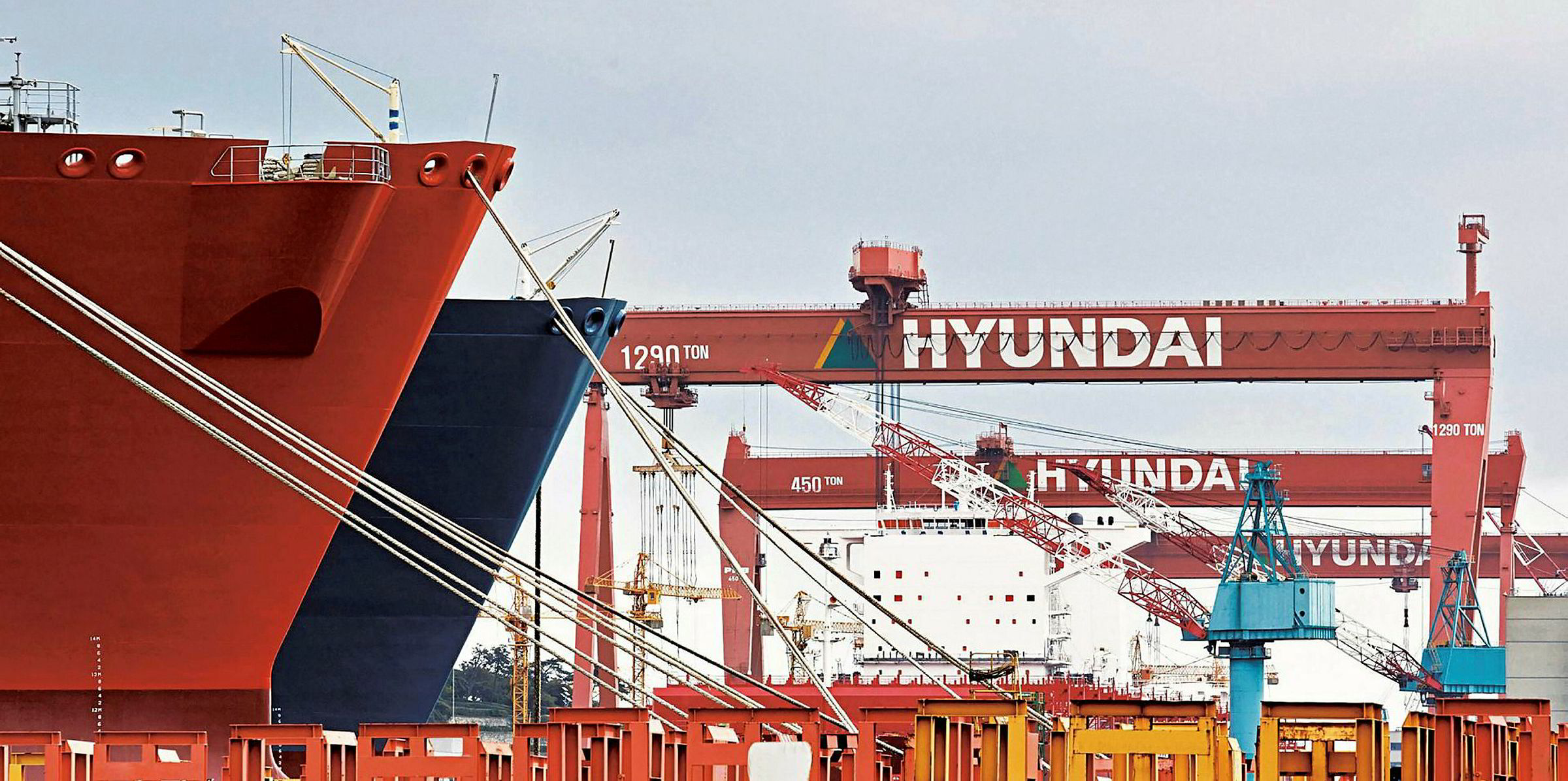Shipping lender DNB has seen loan impairments spike as the coronavirus outbreak took a grip on the Norwegian economy in the first quarter.
The bank also said the oil price fall had hit its financial figures due to big exposure to the offshore sector, with shipping rates hit.
Its impairments on financial instruments jumped to NOK 5.77bn ($560m) from NOK 316m in the same period a year ago.
DNB called this a significant increase but said it was well positioned to come through the crisis.
Oil-related industries are the most vulnerable, it added, especially offshore companies that provide services to oil companies both in Norway and internationally.
Around 45% of the impairment losses in the quarter are related to the oil and offshore industry.
Shipping lending increases
The situation has also hit overall credit quality, resulting in increased impairment losses for several individually assessed customers in stage three, the final stage of loan restructuring before default.
There were net impairment losses of NOK 211m for the shipping portfolio, an increase of NOK 382m year on year.
The increase was primarily related to containerships and dry bulk, DNB said.
But its shipping book expanded in the quarter, reaching NOK 56.39bn of loans, from NOK 52.86bn a year ago, reversing the recent downwards trend in recent quarters as the bank sought to cut exposure through natural attrition.
Of the total, NOK 288m was in stage three, compared to NOK 394m in 2019.
The impairment figure for oil, gas and offshore was NOK 2.6bn, up NOK 2.55bn from the same three months of 2019.
Buffer in place
"DNB’s pre-provision quarterly results were sound, the bank’s balance sheet remained strong and the capital level was solid," the bank added.
The bank has built up record-high capital that can act as a buffer in an uncertain time for the Norwegian business community, DNB said.
Net profit was cut to NOK 4bn versus NOK 7.58bn in 2019, while interest income increased to NOK 10.39bn from NOK 9.28bn
"The most important thing for us this quarter has been to help customers who are affected by the situation we're currently in," said chief executive Kjerstin Braathen.
"DNB is well equipped to handle challenging times, both in a short and long-term perspective. With a higher level of equity than ever, the bank has the capacity to help customers in the time ahead."
She added that ever since the financial crisis of 2008, the bank has built up capital with a view toward withstanding difficult economic circumstances.
"We are reaping the benefits of this now. In addition, we have worked diligently to secure the bank's funding," she said.
Bonds bought
Before Christmas, it sold almost NOK 60bn of debt in the bond market, which will now be used for loans.
"So let there be no doubt - the bank is still open," added Braathen.
"When the future prospects for the economy become weaker, we have a duty to set aside money for future losses straight away. The accounting rules have recently been made more stringent on this point. That's why impairment losses are increasing despite the fact that we haven't seen a wave of bankruptcies."
She said there had also been lower activity for IPOs and other capital advisory services.
DNB has postponed a decision on paying out a dividend to shareholders for 2019.






